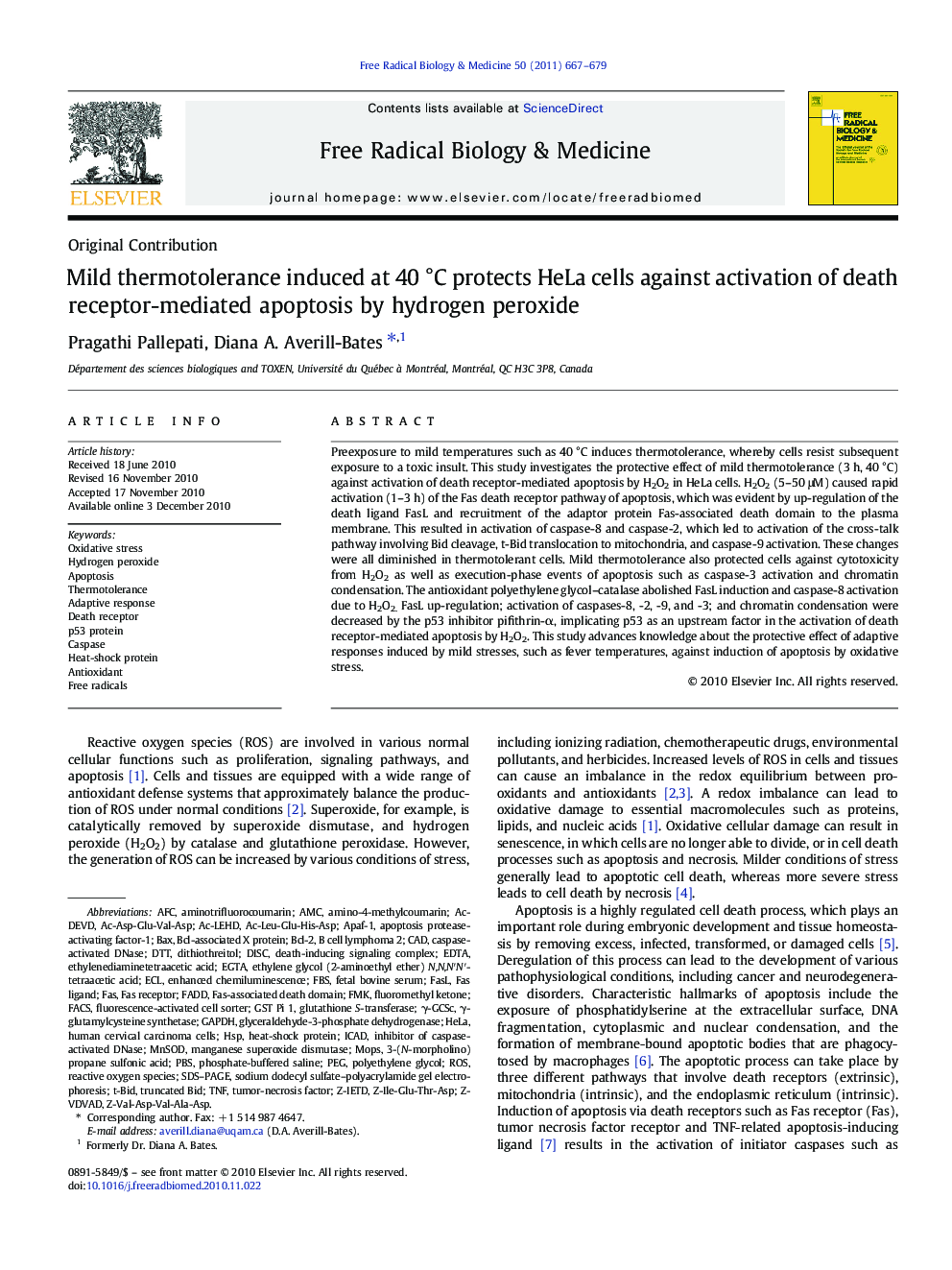| Article ID | Journal | Published Year | Pages | File Type |
|---|---|---|---|---|
| 1909223 | Free Radical Biology and Medicine | 2011 | 13 Pages |
Preexposure to mild temperatures such as 40 °C induces thermotolerance, whereby cells resist subsequent exposure to a toxic insult. This study investigates the protective effect of mild thermotolerance (3 h, 40 °C) against activation of death receptor-mediated apoptosis by H2O2 in HeLa cells. H2O2 (5–50 μM) caused rapid activation (1–3 h) of the Fas death receptor pathway of apoptosis, which was evident by up-regulation of the death ligand FasL and recruitment of the adaptor protein Fas-associated death domain to the plasma membrane. This resulted in activation of caspase-8 and caspase-2, which led to activation of the cross-talk pathway involving Bid cleavage, t-Bid translocation to mitochondria, and caspase-9 activation. These changes were all diminished in thermotolerant cells. Mild thermotolerance also protected cells against cytotoxicity from H2O2 as well as execution-phase events of apoptosis such as caspase-3 activation and chromatin condensation. The antioxidant polyethylene glycol–catalase abolished FasL induction and caspase-8 activation due to H2O2. FasL up-regulation; activation of caspases-8, -2, -9, and -3; and chromatin condensation were decreased by the p53 inhibitor pifithrin-α, implicating p53 as an upstream factor in the activation of death receptor-mediated apoptosis by H2O2. This study advances knowledge about the protective effect of adaptive responses induced by mild stresses, such as fever temperatures, against induction of apoptosis by oxidative stress.
